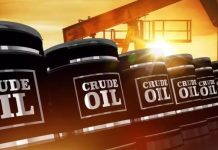- Integrity Of Subsidy Payment Suspect
- Scheme Hits N62 Per Litre
- Stakeholders Deplore Opaque Regime, Demand Urgent Explanation
- Condemn NNPC’s Hijack Of PPPRA’s Role, Workers Fear Job Loss
A princely sum of N1. 149, 385 trillion is estimated to go into the payment of subsidy on petrol imported into the country this year.With the provision of a mere $1 billion, which is about N305 billion in the 2019 budget year, the country may run into a massive budget deficit if nothing is done about the development.
The breakdown shows that at the prevailing $2.54 per gallon of fuel in the United States, which translates to N774.7 at the official exchange rate of N305 to $1, a litre of petrol in the country costs N193.68 on the average.Going by the last pricing template released in 2018 by the Petroleum Products Pricing Regulatory Agency (PPPRA), additional cost elements of N14.3 per litre is required to cover the retailers’ margin, bridging fund, dealers’ cost and transporters’ pay.
Thus the landing cost of petrol in the country currently is N207.98. This implies that government currently pays N62.98 subsidy per litre of petrol.The Nigeria National Petroleum Corporation (NNPC), which has since deployed subsidy as part of its operational costs, as the last resort of supply line as enshrined in the NNPC Act 1977, defrays an estimated N3.149b per day under what is tagged “under-recovery.”
The sum of N3.149b per day therefore implies that the country is projected to spend N1.149, 385 trillion in 2019 on petrol subsidy. The Group Managing Director of NNPC, Dr. Maikanti Baru, last year said that the country’s daily consumption of petrol was 50 million litres.This daily national consumption figure was also, yesterday, confirmed by the acting General Manager, Corporate Services of the Petroleum Products Pricing Regulatory Agency (PPPRA), Kimchi Apollo.
With the NNPC playing the role of the sole importer of petrol into the country and adopting the “under recovery” approach, the PPPRA no longer processes payments of subsidy, but its officials are still present at the ports to ascertain how many litres the NNPC is bringing in.The takeover of the processing of subsidy payment led many to conclude that the NNPC has usurped the function of the PPPRA, but Apollo insisted that the NNPC has not taken over PPPRA’s responsibilities, stressing that both organisations are working together to ensure a smooth distribution of petroleum products.
Apollo, who had, in an earlier statement explained that the Petroleum Support Fund ended in December 2015, added that the scheme has been managed by the PPPRA since May 2016.“Under the this scheme,” the statement explained, “the agency regulates petroleum products supply and distribution through the issuance of Quantity Notification (QN) and LAYCAN to NNPC and Oil Marketing Companies (OMCs). It also monitors discharges at various facilities nationwide.”
Before now, the PPPRA generated data that is used by the Ministry of Finance to back up payment claims by marketers, before they were paid by the Central Bank of Nigeria (CBN).The Group General Manager, Group Public Affairs Division of the NNPC, Ndu Nghamadu, promised to provide more details on the subject, but failed to do so as at the time of filing this report.
However, while there is no evidence of abuse of the process, there is total absence of any back-end channel that is empowered to verify NNPC claims. Meanwhile, there is disquiet in the PPPRA as both the executive secretary of the agency, Abdulkadir Umar Saidu, and board chairman, Muhammadu Buba, are seen as “NNPC boys” that were sent to preside over the demise of the PPPRA, and possibly put the career of the workers at risk. The PPPRA staff members are indeed apprehensive that the current situation may jeopardise their jobs.
Buba is a former managing director of Pipeline and Products Marketing Company (PPMC), a subsidiary of the NNPC. The Guardian learnt that the reversal of the sale of the nation’s refineries by the administration of Olusegun Obasanjo, by the Musa Yar’Adua-led administration paved the way for the collapse to the liberalisation of the downstream sector.
A source explained: “The cancellation of the sale of the refineries by Yar’Adua’s administration led Nigeria to the present situation. The administration adopted a populism system of government in a capitalist economy. That was wrong. I think what would have been adopted by that government was “welfarism” as adopted by the late sage, Obafemi Awolowo. The sale of the refineries would have put Nigeria’s economy on a sustainable path. This is the same mistake the current administration is making.”
Principal Consultant to the National Assembly on Oil and Gas Industry Reform, Dr. Francis Adigwe, warned that the current subsidy regime is not sustainable, saying government must exit a regulated downstream sector.His words: “Government needs to liberalise the downstream sector. Nigeria has an oil and gas industry that will not grow as long as government continues to subsidise products. The importation ensures the value-added that will provide employment and rejuvenate the economy is completely lost.”












